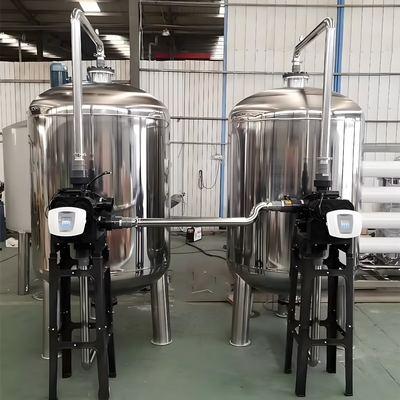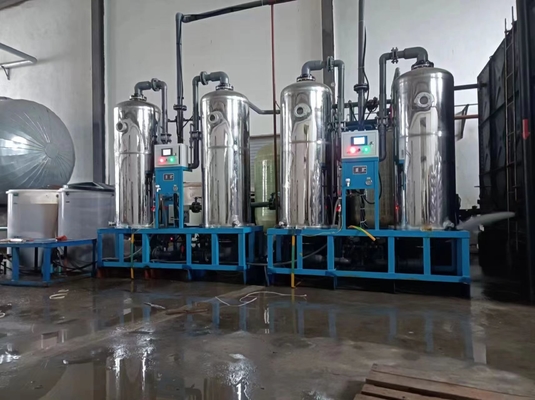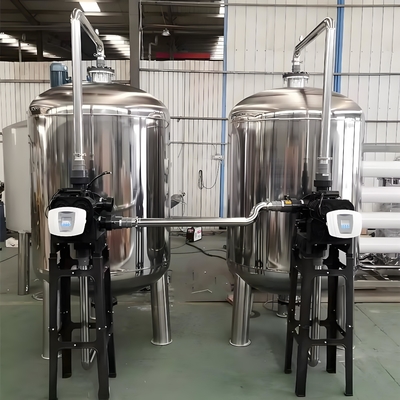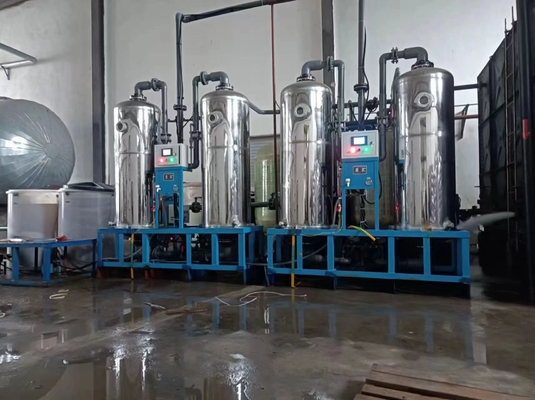-
Condensate Water Recovery Device
-
Reverse Osmosis Equipment
-
Fully Automatic Water Softener
-
Industrial Sand Filter
-
Water Supply Equipment
-
Chemical Dosing Device
-
Container Flipper
-
Container Loading and Unloading Machine
-
Truck Flipper
-
Electric Transfer Cart
-
Electronic Weighbridge
-
Mobile Loading Dock Ramp
-
Air Compressor Heat Recovery
-
Water Treatment Accessories
Fully Automatic Water Softener Plant Manufacturers Stainless Steel Carbon Steel Dual Tank Equipment

Contact me for free samples and coupons.
Whatsapp:0086 18588475571
Wechat: 0086 18588475571
Skype: sales10@aixton.com
If you have any concern, we provide 24-hour online help.
x| Features | High Automation Level, Stable Water Quality, High Efficiency, Low Energy Consumption, Low Operating Costs. | Materials | Fiberglass Reinforced Plastic (FRP), Stainless Steel, Carbon Steel |
|---|---|---|---|
| Application Fields | Industrial Boilers, Central Air Conditioning Systems, Heat Exchangers, Hotels, Restaurants, Food And Chemical Industries, Laundry And Dyeing, Medical And Sanitation, Etc. | Product Information | Automatic Water Softening Equipment - Dual-Tank, Single-Tank, Continuous Water Production |
| Product Specifications | 1-100T/H | Origin | Taian, Shandong |
| Brand | Tonglida | ||
| Highlight | automatic water softener plant manufacturers,water softener plant manufacturers stainless steel,stainless steel fully automatic water softener |
||
Product Description:
The fully automatic water softener is a sophisticated system that comes equipped with a comprehensive automatic control system. Users can avail of the liberty to choose between a single-tank or a dual-tank system according to their requirements. The automatic system in place ensures that one tank is operational while the other one serves as a backup.
The regeneration process begins once the operating tank reaches the set water production capacity. The backup tank takes over the operation as the first tank enters into regeneration mode. The softening system operates entirely in an automatic mode and includes several process stages that include running, backwashing, brine suction, ion exchange, forward flushing, and standby.
The raw water passes through the resin tank, which has an ion exchange resin and an automatic control valve. The exchangeable ions Na+ present in the resin undergo ion exchange with the cations (Ca2+, Mg2+) present in the water. This process ensures that the water hardness of the softener outlet is ≤0.03mmol/L.
The controller initiates the regeneration process automatically when the system reaches the set flow rate. The regeneration process consists of four essential steps that are backwashing, brine suction regeneration, exchange, and forward flushing.
- Backwashing: The first step involves directing water upwards through the bottom distributor to flush and loosen the resin bed while simultaneously removing accumulated suspended particles from the resin surface.
- Brine Suction Regeneration: After diluting the saturated brine solution to a concentration of 5-8%, it is injected into the resin tank through the brine injector. The brine solution flows downward through the deactivated resin bed, regenerating the resin and restoring its original exchange capacity.
- Exchange: This step involves two steps. Firstly, after injecting the regeneration liquid, some regeneration brine is left uninvolved in the upper space of the resin tank. To ensure maximum utilization of this brine, clean water with the same flow rate as the regeneration liquid regenerates it through the resin bed. In the second step, the regeneration waste liquid in the resin pores is displaced from the resin bed.
- Forward Flushing: The purpose of this stage is to entirely remove the residual regeneration waste liquid from the resin bed and clean it thoroughly until the water meets the necessary standards.
| Project Name | Unit | 1T/H | 10T/H | 40T/H | 50T/H | 60T/H | 80T/H | 100T/H | |
| Inlet pressure | mpa | 0.15-0.25 | |||||||
| Water production | T/H | 0.8-1.2 | 9-11 | 35-45 | 45-55 | 55-65 | 70-90 | 90-110 | |
| Raw water turbidity | O | ≤2 | |||||||
| Raw water hardness | mmol/L | ≤15 | |||||||
| Residual hardness of soft water | mmol/L | ≤0.03 | |||||||
| Self-consumption water rate | % | 4 | |||||||
| Power supply | Single-phase electricity 50HZ 220V | ||||||||
| Diameter of exchange column | Stainless steel head | mm | ∅900 | ∅900 | ∅1000 | ∅1200 | ∅1400 | ||
| Ordinary head | mm | ∅160 | ∅420 | ∅890 | ∅900 | ∅1000 | ∅1180 | ∅1400 | |
| Resin tank height | mm | 1800 | |||||||
| Inlet and outlet water pipeline | Solenoid valve | mm | DN15 | DN80 | DN80 | DN100 | DN125 | DN150 | |
| Valve body | mm | DN20 | |||||||
| Flow meter | L/H | 60 | 160 | 1000 | 1000 | 2000 | 2000 | 2500 | |
| Resin filling capacity | Solenoid valve | KG | |||||||
| Total weight of equipment | KG | ||||||||
| Salt tank size | Self-processing | mm | 225*650 | 410*650 | 700*850 | 760*800 | 760*800 | 890*800 | |
| Purchase from outside | 1500 | 2000 | |||||||
Features:
High Automation Level, Stable Water Quality, High Efficiency, Low Energy Consumption, Low Operating Costs.
Technical Parameters:
Our system offers automatic control with simple, reliable operation, making it easy to manage your water softening needs.
With strong adaptability, our machinery is capable of effectively softening high hardness water with a hardness level up to ≤15mmol/L to residual hardness levels of ≤0.03mmol/L in a single pass.
Our system boasts a short regeneration time, low resin consumption, low salt consumption, and stable water quality, making it an efficient and low-cost solution for your needs.
This lightweight equipment features a compact, rational design, and requires only a small footprint, making it an ideal solution for all types of environments.
Our complete machine arrives direct from the factory, and installation is simple. Only the inlet and outlet pipes and power supply need to be connected to start producing high-quality water.
Applications:
The automatic water softener is a highly versatile solution designed to address several water treatment requirements. It is primarily used for the circulating makeup water in various systems, including steam boilers, hot water boilers, heat exchangers, steam condensers, air conditioning systems, and direct-fired equipment and systems.
Moreover, this equipment is also used for domestic water treatment, and in a wide range of industrial water treatment sectors, such as food, electroplating, pharmaceuticals, chemicals, printing and dyeing, textiles, and electronics. It is also utilized as a pre-treatment for desalination systems.
The main advantage of using this water softener is that it significantly reduces the hardness of the produced water. This is achieved through a single-stage or multi-stage water softening process, which effectively removes minerals such as calcium and magnesium ions, resulting in water that is better suited for its intended purpose.






